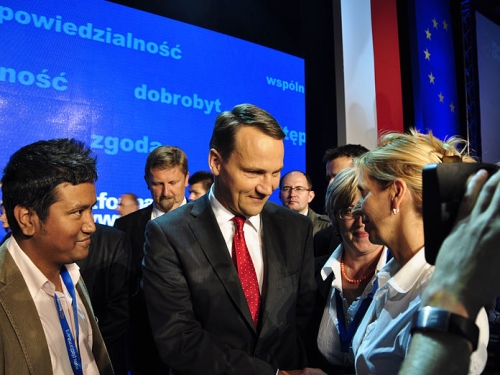
This article was originally published by European Geostrategy on 12 October 2014.
The departure of Carl Bildt and Radoslaw Sikorski as foreign ministers of Sweden and Poland respectively is an interesting development for European foreign policy. The timing is awful. At a moment when Europe is faced with crises in the east and the south, Europe can ill afford to lose either its most experienced statesmen or the vision they bring to the table. Both leaders simultaneously believe in the strategic necessity of the EU and they are as comfortable in Washington as they are at home in Warsaw or Stockholm. With Bildt and Sikorski gone, the EU is also lacking any obvious hardliners on Russia. This may satisfy some in the EU but surely Vladimir Putin must be pleased with their replacements.


